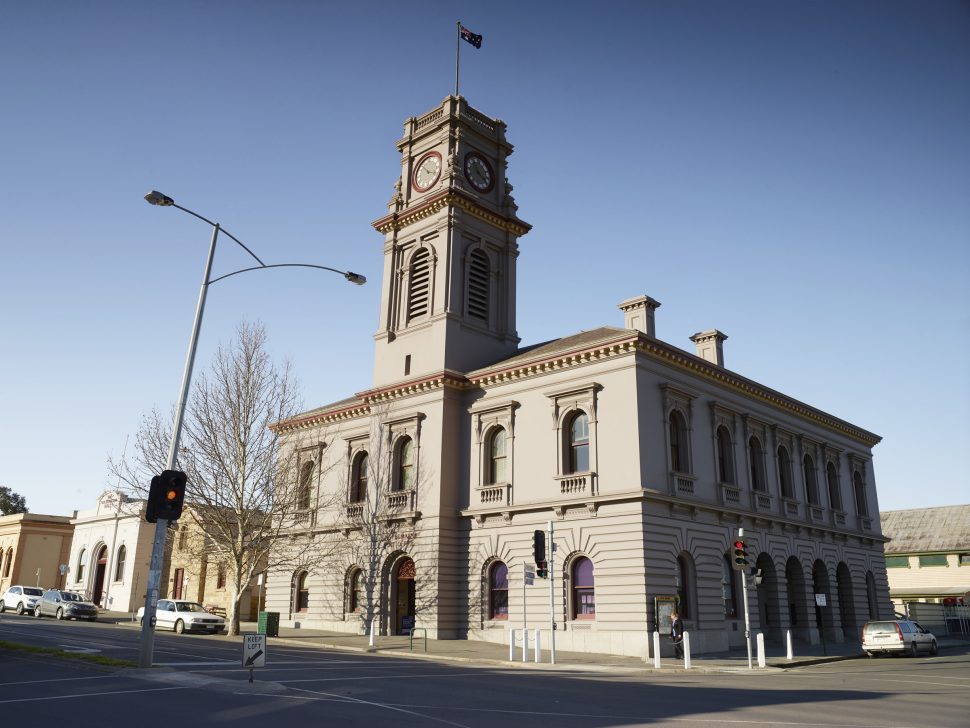Heritage buildings
Our sites range from Post Offices to mail processing sites and warehouses, to offices and call centres.
Of our total portfolio of owned properties, 67 are heritage places included in the Commonwealth Heritage List. Many of these heritage places are also included in State and Territory heritage registers or are protected at a municipal level. These buildings date from the Colonial era through to post-Federation and post-WWII.
All of these buildings are valued by their local communities for the services they have provided in the past, as well as for their appearance and architectural qualities.
Changing technologies have resulted in changes to the layout and design of our buildings. In the late 1800s, the introduction of telegraph offices led to extensions and alterations to many buildings. Similarly, changes in mail handling in the 1900s led to alterations to post offices and construction of new dedicated mail distribution facilities. More recently, we have opened shops in major shopping centres and constructed new large-format retail stores.
As a result of these trends, many of our heritage properties are no longer suitable for use for postal services but are leased to external businesses and organisations.
To care for our heritage properties we have developed our Australia Post Heritage Strategy (PDF 1.47MB). In 2010, following a comprehensive assessment, the Chairman of the Australian Heritage council congratulated us on our exemplary management of the extensive heritage assets, and stated that Australia Post had established a benchmark in identifying these heritage assets.
In the last 13 years to June 2023, we have invested $39 million nationally on our heritage portfolio, to provide specialist painting, maintenance and conservation works. Many of these buildings are adapted for reuse for the benefit of the local community.
Heritage strategy
In 2004, the Commonwealth government introduced a new heritage management regime with amendments to the Commonwealth Environment Protection and Biodiversity Conservation Act 1999 (EPBC Act) and Environment Protection and Biodiversity Conservation Regulations 2000. View EPBC overview (PDF 226kB)
The new legislation established the Commonwealth Heritage List and we nominated more than 60 of our buildings to be included on the list.
Our Heritage Strategy, prepared in accordance with the EPBC Act, integrates the management of owned heritage properties into our overall property planning and management framework, and ensures the protection and conservation of those properties. This strategy covers all aspects of heritage property management, including planning for future works, property upgrades and development, leasing, property divestment and staff training.
Heritage property protection
We manage our property portfolio according to customer and business needs. We need to respond to changing customer demands, continue to maintain our Community Service Obligations and act commercially, and this requires flexibility. It's one of the main reasons our portfolio consists of owned, leased and let sites.
We engage external specialist heritage consultants on heritage projects to ensure that the management of and changes to heritage places do not adversely impact heritage values which are protected at Federal, State or Territory and/or local level.
When a heritage-listed property is to be sold, we engage external specialist heritage consultants to develop a comprehensive Heritage Management Plan for the building. We also notify the Department of Climate Change, Energy, the Environment and Water (DCCEEW) of any such proposed sales and, where deemed necessary, include a covenant in the contract of sale to protect the Commonwealth heritage values of the property.
